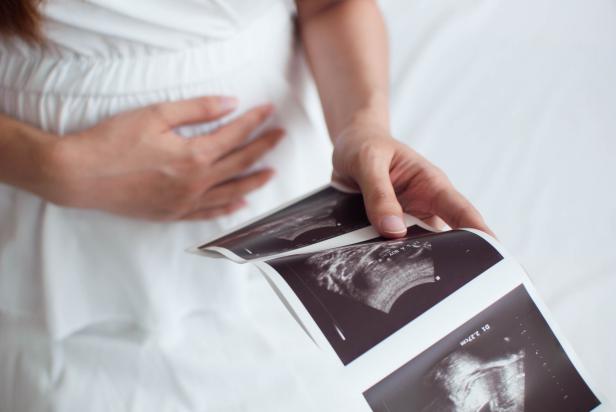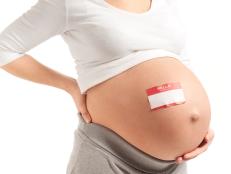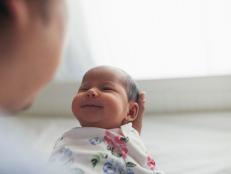New Study Says Women’s Reproductive Years May Be Increasing
The biological clock just added some more time.

Karl Tapales

For decades, women have been told by their doctors that 35 is the age that their reproductive systems start to slow down, making it more difficult to get pregnant. Women who become pregnant after the age of 35 are considered "advanced maternal age" or even referred to as having a "geriatric pregnancy" — and yes that term makes us cringe. However, there’s good news for women who are wanting to add to their family but feeling like their biological clock is ticking.
According to a study released in the Journal of the American Medical Association, the age when a woman’s reproductive systems begin to slow has increased from 35 to 37.1. How did researchers add this jump in fertility? A global study showed that women's age of menopause has been steadily increasing worldwide from 48.4 years to 49.9 years. This means that women have more time to have a child well into their 30s and 40s.
Birth rates for women in their 20s have been on the decline for years, according to the CDC, while women in their 30s and 40s have been increasingly adding mom-to-be to their resume. With women focusing on their education and building their careers, planning for a family has taken a backseat in their 20s.
However, for many women, 35 has long been the age that planning to be a mother may be challenging or become more dangerous for mom or the baby. Previous studies have shown that pregnancies after the age of 35 are at a greater risk of miscarriages, genetic abnormalities, and preterm labor. This new study may help women who are planning to add to their family in their 30s by giving them a little longer before they feel pressure from their biological clock.
Researchers added that even if a woman chooses to not have a baby beyond 35, the extra years of fertility could have health benefits. "If the reproductive life span is longer, then that means they still have exposure to the natural estrogens, which will also help delay some diseases like cardiovascular disease and osteoporosis, and to some extent, even cancer," Dr. Duke Appiah said.
It’s interesting to note that the study also revealed the age that girls are getting their first period has dropped. On average girls are beginning menstruation at 12.7 years instead of the previous average of 13.5. Overall this study has gained a lot of attention from the medical community because recommendations for women as they reach menstruation, when they choose to have a baby, and reach menopause could change.








.jpg.rend.hgtvcom.231.174.suffix/1725650866453.jpeg)






